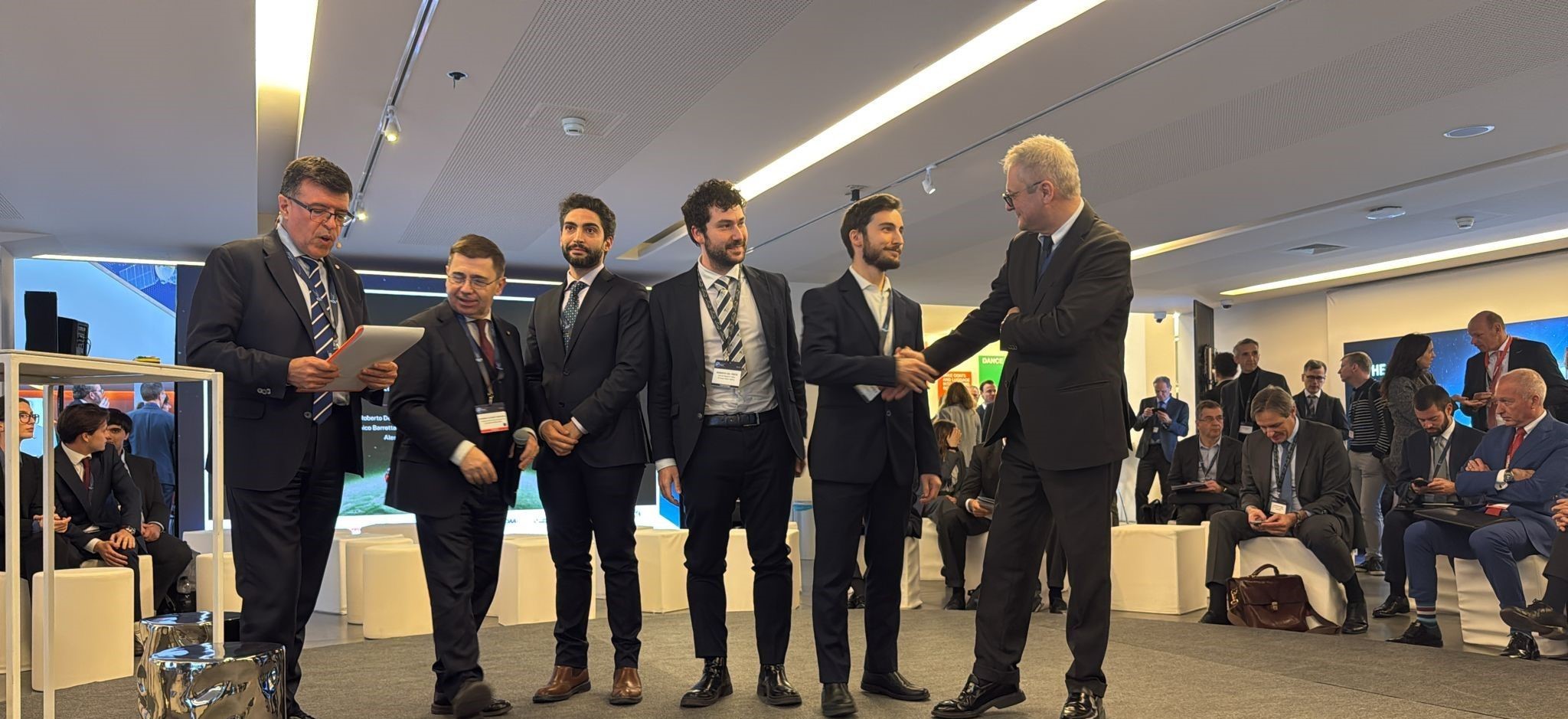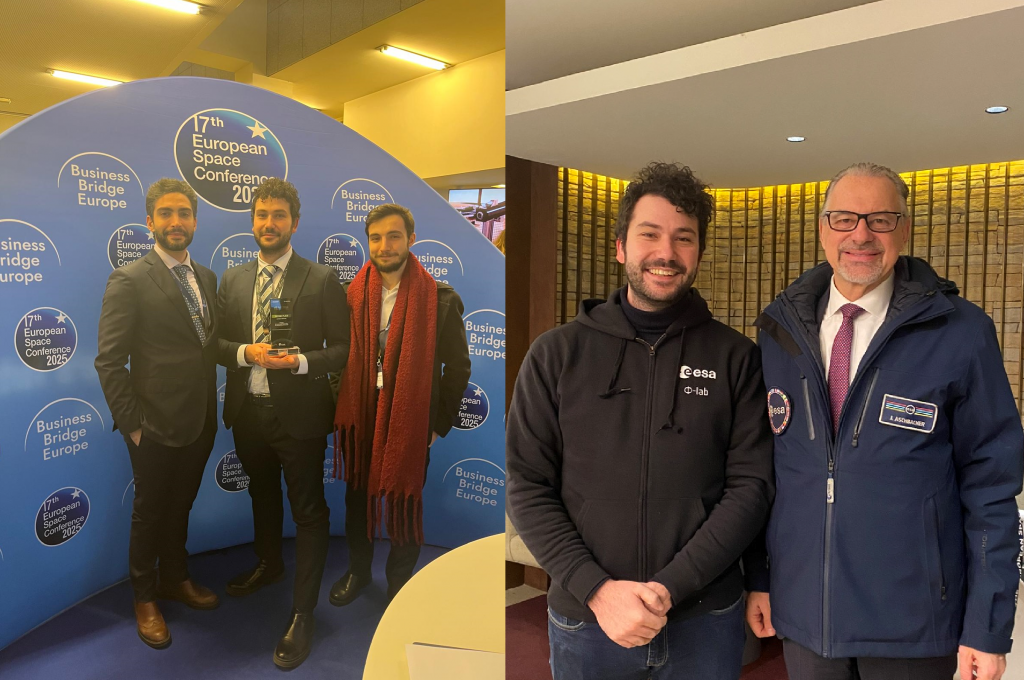P³ANDA receives second prize at the 2024 Telespazio Technology Contest



On 28 January 2025, a group composed of one ESA Φ-lab Research Fellow, one Visiting Researcher and one Intern, was awarded the second place at the 2024 Telespazio Technology Contest (#T-TeC). The award ceremony was held in Brussels during the 17th European Space Conference, with the presence of ESA Director General Josef Aschbacher. Their project, P³ANDA, focused on the creation of an AI-powered compact instrument to capture panchromatic images, optimising the acquisition and processing of satellite data in real time.
The Telespazio Technology Contest (#T-TeC) is a global open innovation competition sponsored by Leonardo and Telespazio, aligned with Leonardo Group companies’ innovation needs, and designed to inspire young STEM students from universities worldwide and drive innovation in the space sector.
Its sixth edition brought together a record number of 114 participants, showcasing 29 proposals from 26 universities from 10 different countries. The 2024 edition awarded winners with cash prizes and the chance to transform their ideas into start-ups through acceleration and incubation programmes, helping them bring their projects to market.
The awards ceremony, held in Brussels during the 17th European Space Conference with the presence of ESA Director General Josef Aschbacher, showcased proposals in two categories: ‘Idea’ and ‘Prototype’. The ‘Idea’ category was designed for projects in the early stages of development, while ‘Prototype’ was reserved for more mature projects, in which participants presented advanced prototypes ready for testing and further development.
The teams tackled seven different challenges spanning various aspects of the space sector. The themes ranged from sustainability in space and Earth to advanced Earth Observation and geo-information services, in-orbit services, the circular economy of space, and much more. The competition showed a diverse set of forward-thinking solutions, emphasising their potential to drive meaningful progress, particularly in sustainability.
Roberto Del Prete (Research Fellow at ESA Φ-lab), Domenico Barretta (Visiting Researcher at ESA Φ-lab), and Alessandro Crispiels (Intern at ESA Φ-lab), won the second prize in the ‘Prototype’ category under the theme “Innovative Electro-Optical Technology Solutions for Remote Sensing.”

Their project, P³ANDA – Panchromatic Plug-n-Play AI-eNabled Data Assembly – integrates a panchromatic imager, an on-board processing unit that runs AI-based and advanced computer vision algorithms, and on-board processing tools in a compact 1U assembly, aligning with the operational needs of small-satellite integrators and Earth Observation service providers. The development of P³ANDA was supported by Ubotica Technologies, IMT, and XCAM.
Designing sensors requires a balancing trade-off among swath width, spectral content, and spatial resolution. While hyperspectral imagers capture and analyse detailed information across a wide range of wavelengths, at the cost of limited spatial resolution, panchromatic imagers collect more photons per unit of time, increasing the signal-to-noise ratio, which results in clearer images, crucial for detailed analyses.
Panchromatic imagers have also an increased modulation transfer function (MTF), which focuses on maximising spatial resolution by emphasising sharpness and clarity. An increased MTF enhances the satellite’s ability to distinguish fine details, essential to applications like target detection or precision mapping.
All in all, P³ANDA is an all-in-one solution: by being AI-ready, it reduces downlink requirements; it is easily integrated with other sensors and includes state-of-the-art lightweight deep learning models.
The team received a cash prize of € 6000 and the opportunity of pre-incubation with cesah GmbH to start their own start-up. They will also have the chance to compete for the incubation process with one of ESA’s Business Incubation Centres.
Roberto Del Prete, Research Fellow at Φ-lab and team leader, says that “This victory in the Telespazio Contest 2024 is not just ours — it belongs to everyone who supported and inspired us. We – Domenico, Alessandro, and I – are especially grateful to Φ-lab for providing the space where our idea came to life. This moment reaffirms the role of disruptive innovation and collaboration in driving the future of space technology”.
To know more: ESA Φ-lab, Telespazio #T-TeC 2024
Photo courtesy of Telespazio
Share